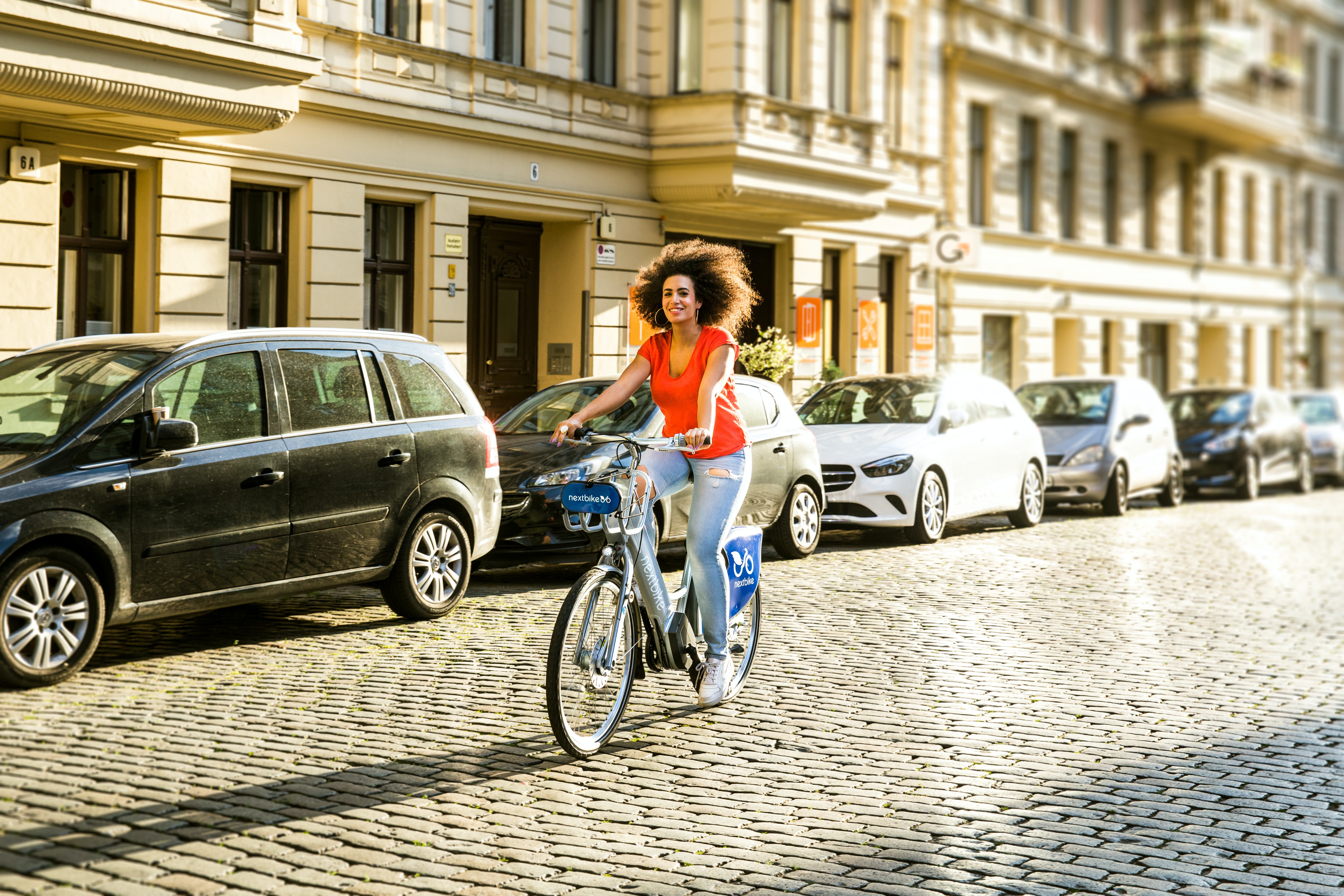
How the Humble Bicycle is Transforming Cities
For the past decades, urban planning focused on crafting cities for cars. Now as attitudes and mindsets are changing, we are starting to see the tide turning towards shaping human-centred cities.
From cycleways, cycle-pedestrian bridges, bicycle parking, bike share systems to data collection and monitoring, ambitious policies can enable more cycling in numerous ways. This article takes a closer look at Velo-city 2021 Lisboa's subtheme, reshaping cities and politics, exploring case studies of cities that have successfully implemented pro-cycling measures and reaped the transformative benefits of cycling in return.
Cars or People? A Chance to Reimagine Cities
Car dominance is not only taking the toll on the environment; it is redefining human spaces as they are becoming one of the scarcest resources in urban areas. By 2050, 68% of the world's population is projected to be living in urban areas adding 2.5 billion people to the urban population.
Plenty of space becomes available once most motorized vehicles are removed from streets. When space was most needed at the peak of the first Coronavirus wave, the fastest countermeasure was to recycle the space dedicated to cars. Amid a global tragedy, many citizens got a glimpse of what their neighbourhoods could look like with less traffic and consequently, with less pollution, less noise, and fewer accidents. As the Coronavirus swept the continent, Europe was also hit by a cycling wave.
From Brussels to Budapest, cities instituted measures to help active travellers keep their social distance while staying safe from cars. In France, from Dijon, to Le Mans, to Paris 116 cities have committed to building cycling lanes. Finland allocated an additional 7,76 EUR per person for cycling promotion measures.
On October 30th, ECF hosted a webinar featuring Frans Timmermans and visionary European leaders who are at the forefront of enabling #MoreCycling in their cities and countries. Watch the webinar here.
Shifting away from Car-Dependence
Paris first formulated the idea of "la ville du quart d'heure", the fifteen-minute city, and many other cities including Milan, Portland, Glasgow, Melbourne, Bogota, Ottawa quickly followed suit. The 15-minute city stands in stark contrast to the urban planning concepts that have dominated over the last centuries.
The idea behind this new way of rethinking urban planning is that citizens should be able to meet most or all their daily needs within a short walk or bike ride from home. Ultimately, the city will become more local, more vibrant, more livable, more resilient while becoming less car-dependent.
The City of Leuven introduced its new traffic circulation plan in 2016 increasing cycling by 32% as through car traffic was eliminated from the city centre. Bus ridership also increased by 12% after the introduction of the plan. Additionally, Air quality improved rapidly, in some places the concentration of black carbon fell by as much as 2,5 times.
So, what about the economy? Most case studies have shown that prioritizing human beings over cars has not resulted in a decline in economic activity. On the contrary, customers using their bikes to run their errands account for the consumption of 111 bn EUR per year in the EU. In London, retail vacancy was 17% lower and retail rental values 7.5% higher after active mobility improvements in shopping streets and town centres.
Creating a Welcoming Atmosphere
The number one barrier to increasing cycling and getting more people to cycle is road safety. By the end of September in 2019, the yearly count of fatal road accidents reached 1,000,000 victims worldwide. Europe alone accounted for 25,000 casualties. Plus, car-based design creates a noisy and unwelcoming atmosphere in urban areas. In October 2020, the Netherlands put a brake on road causalities introducing 30 km/h as the new normal in all built-up areas. A similar success story was recorded in Finland. After introducing a 30km/h zone city centre, Helsinki recorded zero road deaths in 2019.
Not just a City for Cyclists
A cycling-friendly city is not just about people who cycle, it’s about connecting people through urban design. Shared spaces are also inclusive spaces that are accessible to people of all ages, genders and backgrounds.
Velo-city 2021 Lisboa’s main theme, #CycleDiversity and subtheme reshaping cities and politics will be all about sharing and inclusion. Do you have any thoughts on reshaping cities and transforming policies through cycling? Submit an abstract by November 30 and tell us all about your best ideas!

Network/Project Involved:
Contact the author
Recent news!
Upcoming events
Contact Us
Avenue des Arts, 7-8
Postal address: Rue de la Charité, 22
1210 Brussels, Belgium









